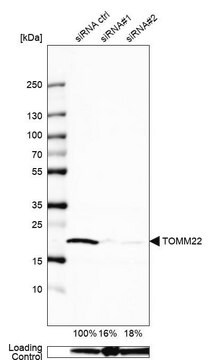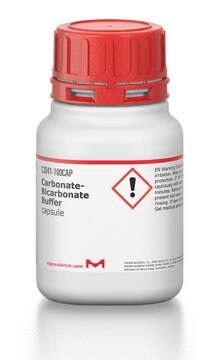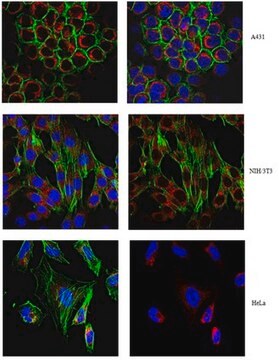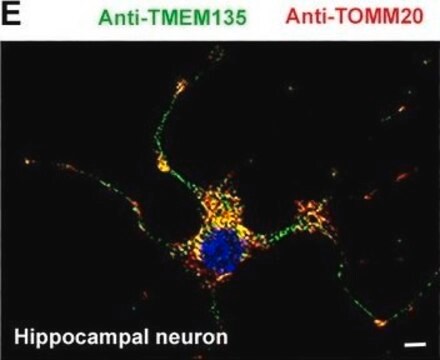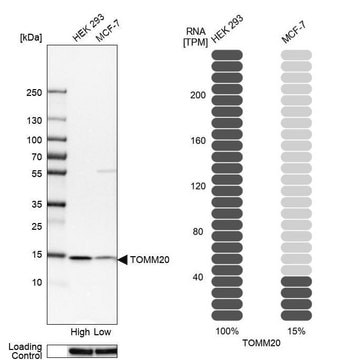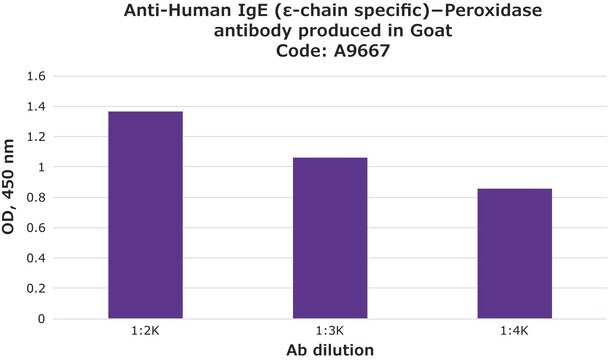T6319
Anti-TOM22 antibody , Mouse monoclonal
clone 1C9-2, purified from hybridoma cell culture
Synonym(s):
Anti-Mitochondrial import receptor Tom22, Anti-TOMM22, Anti-Translocase of outer mitochondrial membrane 22 homolog (yeast)
About This Item
Recommended Products
biological source
mouse
Quality Level
conjugate
unconjugated
antibody form
purified from hybridoma cell culture
antibody product type
primary antibodies
clone
1C9-2, monoclonal
form
buffered aqueous solution
mol wt
antigen 22 kDa
species reactivity
human, monkey
should not react with
rodent
concentration
~1 mg/mL
technique(s)
immunocytochemistry: suitable
microarray: suitable
western blot: 0.5-1.0 μg/mL using whole extract of cultured human lymphoma Raji cells.
isotype
IgG1
UniProt accession no.
shipped in
dry ice
storage temp.
−20°C
target post-translational modification
unmodified
Gene Information
human ... TOMM22(56993)
General description
Immunogen
Application
Western Blotting (1 paper)
- Western blotting
Biochem/physiol Actions
Physical form
Disclaimer
Not finding the right product?
Try our Product Selector Tool.
Storage Class Code
10 - Combustible liquids
WGK
WGK 3
Flash Point(F)
Not applicable
Flash Point(C)
Not applicable
Choose from one of the most recent versions:
Certificates of Analysis (COA)
Don't see the Right Version?
If you require a particular version, you can look up a specific certificate by the Lot or Batch number.
Already Own This Product?
Find documentation for the products that you have recently purchased in the Document Library.
Our team of scientists has experience in all areas of research including Life Science, Material Science, Chemical Synthesis, Chromatography, Analytical and many others.
Contact Technical Service